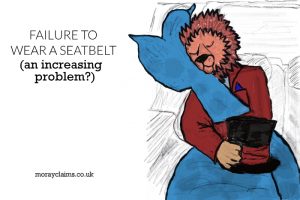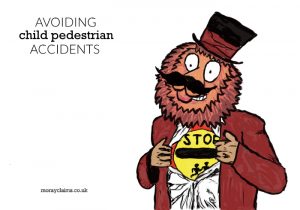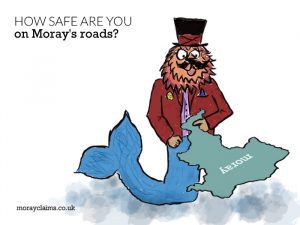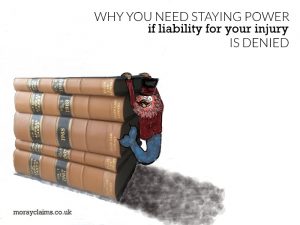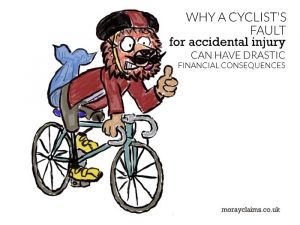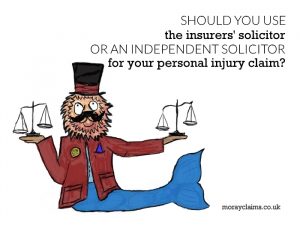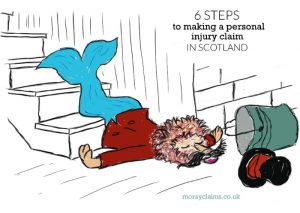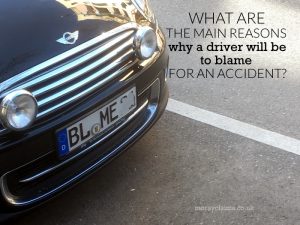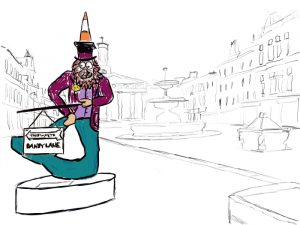Legal expenses insurance (LEI) is also known as legal protection insurance or even just legal insurance. It can pay for the cost of legal advice, if you need help, in a variety of scenarios - for example - a boundary dispute with a neighbouring property owner a building dispute with a tradesman who has done work on your house an employment dispute a personal injury compensation claim following an accident The insurance can cover you whether you are the person initiating the claim or the person against whom the claim is being made. The main benefit of LEI is that it provides you with a route to justice which may otherwise be too expensive for you to consider. It can be a stand-alone policy but is often an add-on to other insurance, such as house contents insurance. Types of LEI There’s an important distinction between ‘before the event’ (BTE) LEI and ‘after the event’ (ATE) LEI. The ‘event’ is the thing that's happened for which you need the legal advice Continue Reading
How legal expenses insurance can give you access to justice (that might otherwise be denied)
I was renewing my first aid qualification recently and some statistics really hit home. Less than 1 in 10 people in Britain survive an out-of-hospital cardiac arrest. In countries where cardiopulmonary resuscitation (CPR) is taught in schools on the other hand (e.g. Norway), as many as 1 in 4 survive. It seems that providing folks with an early education in first aid fundamentals improves heart attack victims’ chances of making it through their experience alive. In the same way, a recent report by a group of international lawyers has argued that making Legal Expenses Insurance (LEI) more widely available would improve access to justice, giving some people a possible legal remedy where otherwise their chances would be as good as dead. In this article, we are going to consider 3 questions related to LEI. Firstly, what is LEI and what types of LEI exist? Secondly, who is most likely to benefit from taking out LEI? And, lastly, why you should make a general check of Continue Reading
Failing to wear a seatbelt (A problem on the increase?)
The all-time best-selling album of piano music is The Köln Concert by Keith Jarrett. It was recorded at Cologne’s Opera House on 24 January 1975 before an audience of about 1400 people. It’s the best-selling solo album in jazz history (with sales of more than 3.5 million). An astonishing display of improvisational melody and musicianship. Yet it almost did not happen. The piano provided for the late-night performance was sub-standard. Its bass notes were muffled and its high notes tinny. Jarrett himself was suffering from flu. He almost drove off into the night, leaving the first-time, teenage concert promoter, Vera Brandes, to “face the music” of a disappointed and possibly irate public. But he didn’t. Taking pity on Vera – “doing it just for her” – he took a chance and produced one of jazz’s most iconic performances. Risk-taking does not always have good consequences, of course. Failing to wear a seatbelt does not cause a collision but, if a collision occurs, Continue Reading
Avoiding Child Pedestrian Accidents
School crossing patrols stopped in Moray from 20 August 2019. Meaning no more lollipop people to guide our children across the roads. We have to hope that the publicity this controversial Council cutback has received will mean all drivers will take extra special care when in the vicinity of any Moray school. In this article, we will consider 3 matters in relation to pedestrian road traffic accidents involving children. Firstly, we will consider the evidence about road safety measures such as school crossing patrols and why they provide useful benefits. We will then go on to look at the relative duties of drivers and child pedestrians and what scope there is for some of the blame falling on the injured child (contributory negligence). Finally, by means of an example, we will examine the issues that can arise along with contributory negligence, including possible shifting of blame onto a parent who has not taken proper care for their child's safety (in letting them out alone Continue Reading
How safe are you on Moray’s roads?
1,793 people were killed on Britain’s roads in 2017. That figure comes from statistics published by the Road Safety Foundation ('RSF') in July 2019. It means that average of 73 people were killed or seriously injured on Britain’s roads every day. In spite of ongoing improvements in vehicle safety, the annual number of fatalities has changed little since 2011. Across Europe as a whole, the ambitious long-term goal is that, by 2050, we should be getting close to zero road deaths – which would mean road travel achieving similar safety levels to rail and air travel. The good news in Scotland is that we have made measurable progress in improving road safety over the last 3 years. During that time, the risk of death and serious injury has fallen by about 7% across motorways and ‘A’ roads in Scotland. Scotland now has the lowest rate for deaths/serious injury per head of population for travel on major routes – at 13 per billion vehicle kilometres. (In England, it’s 15 and, in Continue Reading
Why staying power is important if liability for an accident is denied
This is a case study of an injury claim arising from a pavement tripping accident. We’ll go through the stages of the claim from intimation of claim to the point where insurers admitted liability. It was not a straightforward process. In our experience, that is not unusual. We hope this will give you an illustration of what can happen with a personal injury claim for tripping injuries. The facts show why perseverance with a claim may be necessary. Here’s a photo of the pavement where the injured person fell. At the time of the accident, the injured person was walking into the photo (i.e. away from the cameraman). The injured person's left foot went down on the edge of hole at a point where it was about 3cm deep. This caused them to go over on their left ankle and suffer an inversion injury to it. Scottish local authorities generally have a duty to repair pavement defects once they produce a height difference of more than 2cm (20mm). This is a height difference Continue Reading
Should you accept the insurers’ first offer?
Sylvester Stallone’s big break as a movie star came with the 1976 film, Rocky. However, his own story is as inspirational as that of the boxer he played on screen. Stallone had a troubled upbringing, spending a lot of time in foster care. In his 20s, at one point, he was so hard up that he had to sell his dog. He wrote the first draft of Rocky after watching a boxing match in which an unknown and unfancied fighter lasted a full 15 rounds against world champion, Muhammad Ali. Film studios were very interested in the script but not with Stallone in the starring role. Nevertheless, he held out. Even when one studio offered him $325,000 for the script alone - at that time, the highest amount ever offered for a script – he did not waver. In the end, he got his wish. The purchase price for the script was only $35,000 (and the movie was reduced to a low budget production) but Stallone got the lead role. Rocky was a massive hit, winning an Oscar for best picture - and Continue Reading
Why a cyclist’s fault for an accidental injury can have drastic financial consequences
Ned Ryerson must be one of the most beloved “annoying” characters in film history. He is the insurance salesman from Phil Connors’ past who keeps turning up to bug Phil. He appears at the same point on Phil’s walk from his Punxsutawney guesthouse to Gobbler's Knob, as Groundhog Day repeats over and over again. It’s one of my all-time favourite films – one which includes a happy ending for Ned, as he explains: “I have not seen this guy for 20 years but he comes up to me and then he buys whole life, term, uniflex, fire, theft, auto, dental, health – with the optional death and dismemberment plan – water damage… Phil, this is the best day of my life!” The “optional death and dismemberment plan” may be a joke (maybe it isn’t) but the list of so many different types of insurance illustrates that insurance is varied and can be complicated. And while it’s possible to be over-insured, so it’s possible to be under-insured – and under-insurance is one of the things we’ll look at Continue Reading
Should you use the insurer-appointed solicitor or an independent solicitor for your personal injury claim?
We received the following question in an enquiry via our website: “After a road accident (not own fault) is it better to claim personal injury through solicitor provided by my insurer or through independent solicitor?” Here are 5 things you could consider which might help you reach a decision on that issue. 1. How experienced and qualified is the person handling your claim? It would be nice to be able to take it as a “given" that the level of experience and expertise of the two types of adviser are the same. However, that is not necessarily safe to assume. Knowing whether your claim is going to be handled by a solicitor or by a paralegal (or by an administration person) could be important. If you're getting help from a solicitor, you have a clear benchmark of legal training. With a paralegal or claim handler, that's not so obvious. In general terms, you're looking for a solicitor who has a proven track record in dealing specifically with personal injury claims. All Continue Reading
6 steps to making a personal injury claim in Scotland
How difficult can it be to send a letter to County Cork in Ireland? Flor McCarthy of McCarthy & Co, Solicitors, in Clonakilty, Co. Cork is a marketing wizard when it comes to legal services. We sent him payment for a book he had mailed to us at our request. But the Euro notes we posted to him did not arrive. And still they never arrived. He probably thought this was a standard trick employed by Scottish solicitors; we thought someone must have intercepted and pocketed our cash payment (of course, embarrassingly, a method of payment we would never advise anyone else to use). Fortunately, Flor did eventually receive his money, which had gone on a round-the-world trip in the meantime. The envelope bore the stamp “Missent to Korea”. Who knew you could get a ink stamp that says that? (We’re now thinking of getting one for the office). Sometimes “simple” things can become complicated. Personal injury claims can be complicated but, for the purposes of this article, we Continue Reading
What are the main reasons why a driver will be to blame for an accident?
Brené Brown is an American research professor. She is based at the Graduate College of Social Work at the University of Houston. She is a best-selling author, covering topics such as shame, vulnerability, empathy and courage. Describing herself as a researcher and storyteller, in this revealing and entertaining animated video, she also describes herself as a “blamer”. She manages to make blaming her husband, Steve (for her dropping - and splashing over herself - a full cup of coffee), sound understandable and reasonable. All he did was come home half an hour late the evening before and shorten her night’s sleep by the same amount. But for his lateness, however, she wouldn’t have been so tired as to need the second cup of coffee she then spilt on herself. As Brene Brown asks: how many of us go to that place, when something bad happens? Where the first thing we want to know is: “whose fault is it?” And we’d rather it be our fault than no one's fault - because it gives Continue Reading
Plans to rename Elgin street not fine and dandy for everyone
Controversial plans to change the name of one of Elgin’s oldest streets have also stirred up an argument surrounding one of the town’s recently-erected statues. If implemented, the plans will see North Street renamed “Dandy Lane”. This is in tribute to the Dandy Lion statue which stands at the west end of the pedestrianised part of Elgin High Street, close to its junction with North Street. Of course, the 10-foot-tall, half-fish / half-big cat monument is no stranger to controversy itself, having been dubbed “cultural vomit” at the time of its unveiling in 2016 as part of Elgin’s Castle to Cathedral to Cashmere Heritage Trail. Local solicitor, Peter Brash, who works at Grigor & Young LLP expressed his firm’s concerns over the proposed change and said they would not take it lying down: "G&Y has been in existence since 1828 and in North Street – we believe – since the 1830s. “No 1 North Street” has been a marketing phrase we’ve used over many years and we’re not sure Continue Reading


